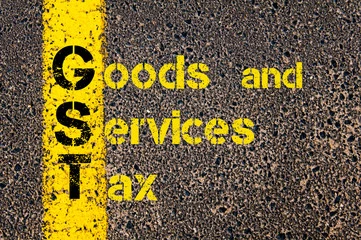GST was envisaged as a concept for the first time formally in 2009, when the State Committee which was called as Empowered Committee of State Finance Ministers, released the white paper on GST.
In that white paper it was revealed that there will be common policy framing. This common policy framing was done till that period of time by the State Committee. However, if it was to be expanded to a permanent institution and in the widest of term which could cover everything on GST, it was required to be given a much larger status.
This larger status was achieved by way of GST Council. GST Council is a Constitutional Institution. It has been brought about to have a policy making and also an administrative and monitoring role for the purpose of GST. The way it is structured in the Constitution is that it has got membership from both the Union and the States.
The Union Finance Minister is the chairman of the GST Council and there is also another member in the Council. Besides that, there is Minister of State for Finance who is also the representative of the Union in the GST Council. Other than that we have representatives from each of the State and also Union Territories which have a legislature. So, you have all the States and you have Pondicherry and Delhi who are represented in the GST Council.
Now what is the purpose of GST Council and what are its role and functions? Now the purpose of GST Council is to ensure that GST is achieving a common national market for goods and services. And also it is a harmonised tax which means that it has got harmonious tax principles imbibed and implemented in practical terms. This is the overarching objective of GST Council as per the Constitutional stipulations.
But, however there are a lot of other functions also which the GST Council does. It has got a recommendatory function. What does it recommend. It recommends model laws, it recommends rules, it recommends policies, these recommendations are to the legislative institutions and also to the executive.
Therefore, when for the first time GST Council recommended model laws, these model laws were debated by the Parliament, by the States which resulted into GST Acts been implemented. GST Council further also recommended to the executives the rules which should be there for the practical administration of GST which have resulted into the Central rules, the State rules on GST which are been implemented at the ground level. Now, besides that GST Council is also required to ensure that there are no regional inequalities in the country. Therefore, it is ensured that the GST Council takes the views of the States, takes the views of the Centre and it also takes into account certain special States, namely the Northeastern States, namely Uttaranchal, namely Himachal, namely Jammu and Kashmir, which have got certain peculiar problems owing to the terrain, the mountainous terrain with which they are preoccupied in their territory. Therefore, the role of the GST Council is actually a very large one. It is not just a policy making institution but it is also the institution which will direct the role and growth of GST in this country.

